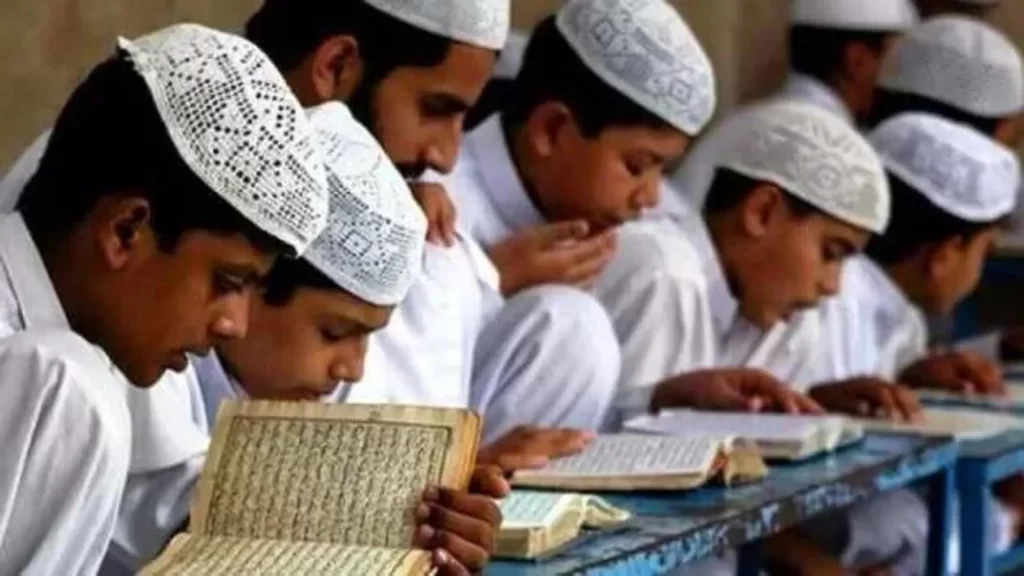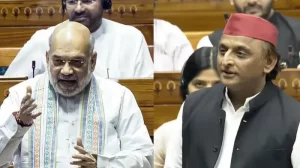
The Supreme Court of India has reaffirmed the validity of the Uttar Pradesh Madrasa Education Act, 2004, bringing clarity and relief to nearly 17 lakh madrasa students across the state. This decision, delivered on October 22, 2024, overturns a previous ruling by the Allahabad High Court, which had declared the Act unconstitutional, igniting significant debate regarding secularism and the role of religious education in India.
However, the Supreme Court invalidated certain provisions of the Act that granted the madrasa board the authority to issue Kamil, Fazil, and other degrees. The court determined that such authority conflicted with the regulations of the University Grants Commission (UGC).
The UP Madrasa Board Education Act, enacted in 2004 under the leadership of then Chief Minister Mulayam Singh Yadav, established a framework for the administration and regulation of madrasas in the state. The Act faced legal challenges over the years, starting with a 2012 petition by Sirajul Haq, the manager of Darul Uloom Wasia Madrasa, who contended that religious education in madrasas contributed to social divides.
Subsequent petitions by individuals including Abdul Aziz (2014), Mohammad Javed (2019), Rajul Mustafa (2020), and Anshuman Singh Rathore (2023) sought the repeal of the Act, claiming that it promoted a discriminatory religious education system.
In March 2024, the Lucknow Bench of the Allahabad High Court delivered an 86-page verdict declaring the Madrasa Act unconstitutional. The court argued that the Act violated the secular fabric of the nation, asserting that children from diverse religious backgrounds should not be subjected to educational systems that favor a particular religion. The ruling emphasized that state-supported institutions offering distinct religious education contravened secular principles and fostered division.
In response to the Allahabad High Court’s verdict, Anjum Qadri, manager of Madrasa Azizia Ijazutul Uloom, appealed to the Supreme Court for a review. On April 5, 2024, the Supreme Court issued a stay on the High Court’s ruling, providing temporary relief to madrasas. The court said the High Court’s interpretation of secularism, suggesting that it was “not prima facie right.” This initial ruling indicated the Supreme Court’s inclination to support religious education, provided it adhered to constitutional principles.
In its final ruling in October 2024, the Supreme Court concluded that the UP Madrasa Act did not infringe upon fundamental rights or compromise the Constitution’s secular structure. The decision recognized madrasas as legitimate educational institutions that uphold cultural and religious diversity. Chief Justice DY Chandrachud, who led the bench, noted, “Secularism means live and let live,” reinforcing that inclusive religious education aligns with India’s pluralistic values.
The court highlighted the historical significance of religious education within India’s educational landscape and cultural heritage, citing examples such as the specialized training of Buddhist monks. The ruling asserted that India’s secularism does not necessitate the exclusion of religious education but rather promotes its harmonious coexistence with secular subjects.
The Supreme Court’s ruling in favor of the UP Madrasa Act represents a significant milestone for religious education in India. By affirming the constitutional validity of the Act, the court has not only safeguarded madrasas but also reinforced India’s commitment to pluralism and diversity. This decision ensures that minority communities continue to enjoy their rights to education and religious expression within the framework of a secular nation.






